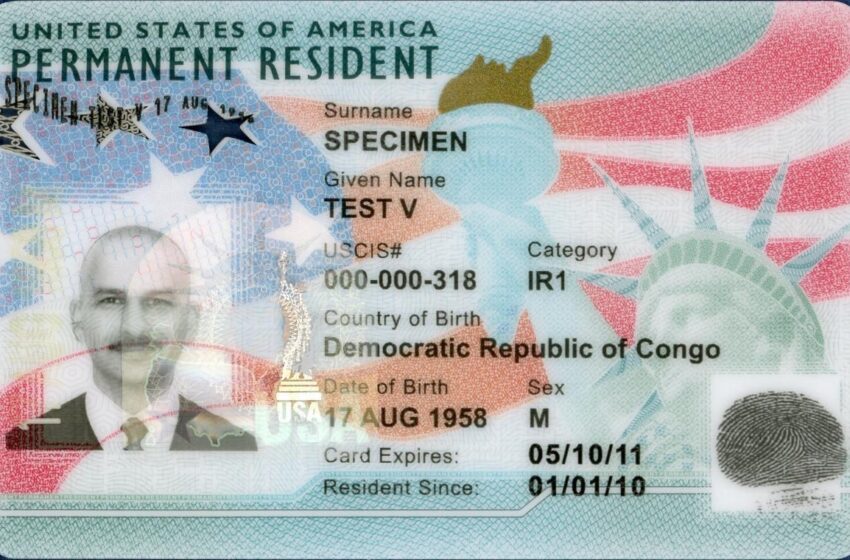Lawmakers advocate axing green card country caps

Participants at a Tech Immigration Summit, including three Indian American Congressmen, advocated the removal of 7% country caps on permanent residence permits or green cards.
Indian American lawmakers Raja Krishnamoorthi, Ro Khanna and Shri Thanedar, spoke on “The Tech Immigration Policies and their role in Bolstering the US Lead in Technology,” at the summit organized by the Foundation for India and Indian Diaspora (FIIDS) at the Capitol Hill on Monday.
Think tank experts, Administration members, Policy advocates, Tech leaders and impacted tech professionals/students also discussed immigration bills and policies impacting tech immigrants, including: Green card backlogs, 7% country-wise quota, H1/B, L1/L5 visas, H4/EAD policies and OPT policies.
READ: White House endorses Eagle Act to eliminate green card country cap (December 8, 2022)
As there is a 7% per country limit on green cards, only about 3% of those who submitted applications are expected to get permanent status in fiscal year (FY) 2024, according to a recent Cato Institute study. Indians in particular face a 99% wait for green cards.
Highlighting the importance of changes in the immigration policy, Khanna said, “We know that immigrants have helped build Silicon Valley. So many of the companies that have started that have created so many jobs that have created so much employment have been founded by immigrants from India, from China, from Asia, from the Middle East, from Europe.”
READ: EAGLE Act, a game changer for green card backlogs? (June 6, 2021)
The current immigration system “hurts” American workers, he said. “You’re hurting American workers by allowing corporations to underpay folks on an H1-B and you’re hurting the families on H1-B And that’s why we need to move them to Green cards and ultimately citizenship. It will help raise wages, help American workers and help these families.”
“We also should be providing a Green Card to folks who are educated in the United States. It makes no sense that we’re paying for someone’s education at college or giving them STEM,” Khanna said
“And then we’re telling them that you have to go back to where they came from when American taxpayers are funding the education. I rather they stay here, create the jobs here, instead of offshoring those jobs,” he said.
Krishnamoorthi also called for increased advocacy and support for bills like HR 6542 that seeks to eliminate the country cap on employment-based immigrant visas. He emphasized that the bills stand for everything immigrants have achieved and accomplished over the years in America.
“Indian Americans are the fastest growing ethnic minority in this country. They are the most prosperous ethnic group in this country. They are the best-educated ethnic group in this country, ” Krishnamoorthi said.
“And so that’s why I keep supporting all of these bills. That’s why I keep co-sponsoring all of these bills because I believe in you and I want your story to repeat itself over and over and over again, ” he added.
Republican Congressman Rich McCormick who is spearheading HR 6542 said that the bill will clear the backlog in ten years if implemented.
He asserted that the problem exists because the cap is not “based on fairness or when you’re putting your application or how qualified you are. It’s based on some arbitrary number. Based on equity.”
Thanedar also called for fixes in the immigration system, sharing his own personal struggle to obtain an F1 student visa to the United States from India.
He said his office is currently working on improving the H1B and green card process as also making sure that PhD degree holders get access to green cards on a priority basis.
“We need legal immigration solidified, our businesses need that. Every time I meet CEOs of companies, they tell me how important it is to be able to find skilled workforce. And today we are losing so many people to Australia, to Canada because they’re taking advantage of our broken immigration system,” Thanedar said underscoring the urgency of fixing the system.
FIIDS member Khanderao Kand stressed that while there have been efforts and legislative actions to solve issues faced by undocumented immigrants, issues faced by documented immigrants often take a back seat.
Several documented dreamers and those stuck in the backlog also shared their testimonials with the audience during the event, to give a more realistic picture of the uncertainty they face in everyday life.
The summit also explored the critical intersection between immigration policies and technological advancement in the United States and highlighted the contributions of immigrants.
It discussed the importance of maintaining the US’s technological edge in artificial intelligence, robotics, and cybersecurity for global prosperity and peace. Participants also discussed specific policy recommendations to enhance US competitiveness in the global technology landscape.

